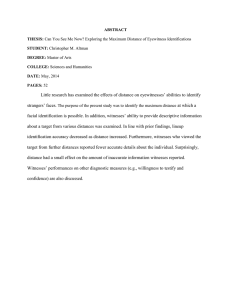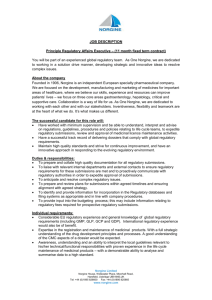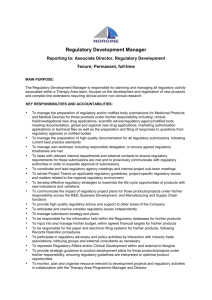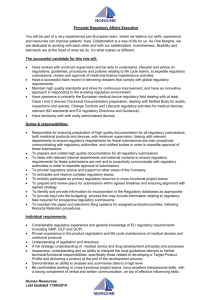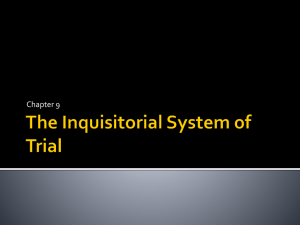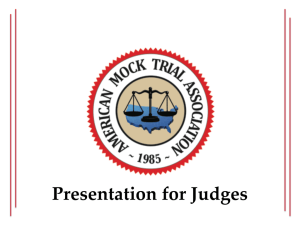“Appeal Hearings” PPT - Conor Kennedy
advertisement
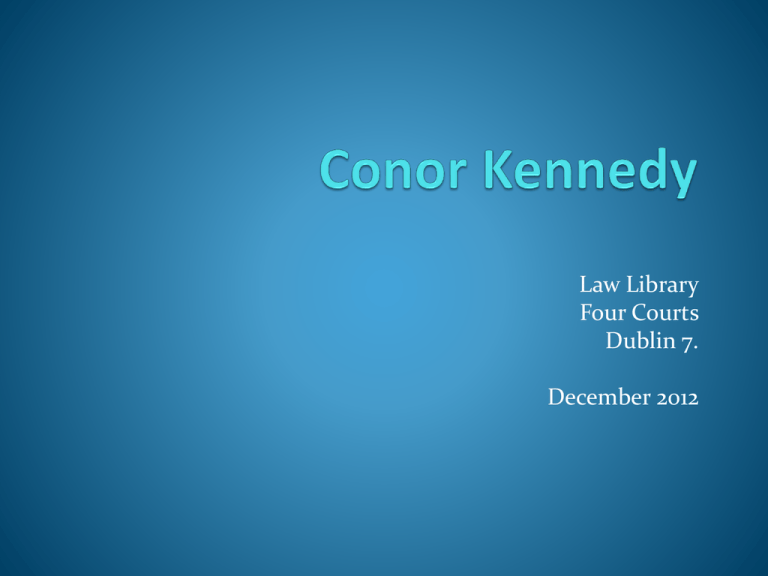
Law Library Four Courts Dublin 7. December 2012 Types of Appeal Conventional – S.933 – Assessment is excessive Specific S.955 - Time limits S.195 - Artists S.531 - Sub-contractors (Also Reg 25) S.604 – Principal Residence S.948 – Sch E S.811 – Anti-Avoidance General S.817 – Anti-Avoidance – Share Disposals Procedure – Section 934 Produce lawful evidence Unique Tribunal Burden of Proof “otherwise …. the assessment shall stand” “he who asserts must prove” Inspector must give effect to decision unless Appeal to the circuit court Case stated to the High Court Powers Precepts Orders to furnish information Summoning and Examining Witness Give evidence about another taxpayer Penalty for failing to attending or obstructing Further Appeals Case stated to High Court Express Immediate Dissatisfaction Pay €25 fee to the Clerk Losing party prepares case stated Procures agreement from parties Circuit Court Appeal 10 days after Appeal Commissioner's decision Case heard again Same statutory procedures apply Case stated to the High Court Practical issues Advance submissions 2 Commissioners Rooms Seating & standing Stenographer Appellant/taxpayer opens Summarises the issues Witnesses Cross examination Submissions Opportunity to challenge Revenue’s submissions Written Submissions Usually required Usually exchanged in advance Contents Introduction Issues Law Application Conclusion Fair Procedures Revenue can refuse to provide initial evidence Evidence will be adduced during hearing Futile & costly procedure ? Dry run for the circuit court Fair Procedures Dellway Investments v National Asset Management Agency [2011] IESC 14 Kiely v Minister for Social Welfare [1977] IR 267 TJ v Criminal Assets Bureau [2008] ITR 119 Evidence Law of evidence The law of evidence encompasses the rules and legal principles that govern the proof of facts in legal proceedings. These rules determine what evidence can be considered by the trier of fact in reaching its decision and, sometimes, the weight that may be given to that evidence. The law of evidence is also concerned with the quantum (amount), quality, and type of proof needed to prevail in litigation. Illegally obtained evidence UK ACT - Section 1(1) of the Civil Evidence Act 1995 “as a statement made otherwise than by a person while giving oral evidence in the proceedings which is tendered as evidence of the matters stated” Hearsay Evidence Evidence admitted in accordance with the law Hearsay evidence not in accordance with the law Cullen v Clarke [1963] IR 368 Kiely v Minister for Social Welfare [1977] IR 267 Borges v Fitness to Practice Committee of the Medical Council [2004] 1 IR 103 Moloney v Jury's Hotel plc Supreme Court 12th November 1999 Exceptions Witnesses Advice on proofs Examination in Chief Identify key issues No leading questions questions which subtly prompts the respondent to answer in a particular way. Witnesses NO COACHING Witnesses Witness preparation Re-Examination Revenue’s Witnesses Cross Examination Usually Revenue Officials Expert witnesses Submissions Have 3 copies of all material Summarise case law Cite relevant aspects of judgement Compare issue with those judgements with your case Distinguish unfavourable cases with yours Cost Same preparation as for High Court Most taxpayers unable to bear that cost Commissioners are experts in the law of taxation Code of Conduct – Pro Bono Conclusion Burden of proof Trial by ambush Fair procedures Prepare

